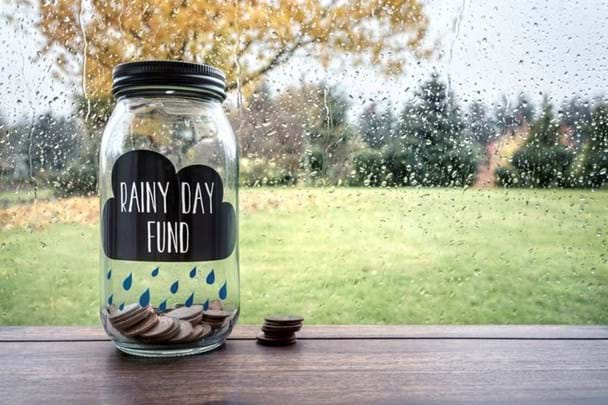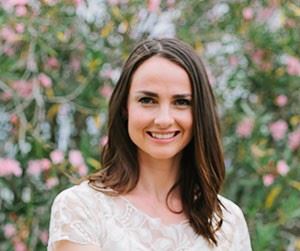Have you ever had an unexpected bill with no way to pay? Anyone who owns a second-hand car or a piece of property knows the pain of suddenly having to fork out money to keep your wheels on the road or your plumber paid. What about unplanned medical bills or last minute travel costs to visit sick or dying relatives? What if you lost your job? With recent devastating floods in northern NSW and destructive bush fires in late 2019 on the East Coast of Australia, many Aussies have had natural disasters thrown at them too. Do you have a backup plan that doesn't include relying on loved ones or a credit card to cover expenses?
While day to day modern life can be unpredictable at times and the might of Mother Nature is impossible to control, we can take charge of our finances so that if an unexpected emergency does arise, we can meet the challenges it brings with courage, strength and some extra cash too. It's the old annoying situation of planning for the worst, but hoping for the best (the reason superannuation, insurance and dentists exist). It’s about future-proofing your life (and lifestyle) and giving yourself a softer place to land if you do fall onto hard times.
What is an Emergency Fund?
Don’t know what an emergency fund is? You probably need one.
An emergency fund is money you put away for that unplanned and expensive rainy day. It’s a way to pay for those costly medical or dental bills, the unfortunate dent in the car, the tax return which turned into a tax bill, sudden eviction from your share house (and the immediate need for more bond money before your old bond is refunded) and many other unpredictable but pricey surprises such as natural disasters or changes in employment.
- It's super easy to set up. Simply create a dedicated savings account for this purpose only.
- Arrange regular automated debits into the account and watch it grow.
- Draw on it if you ever have an unplanned expense.
- Top it up so you always have money when you need it.
Here are some tips to get the most out of an Emergency Fund

Consider your Emergency Fund account a resource for unexpected expenses and treat it with the utmost respect. Remove the temptation to spend from the account (except in emergencies) by not having an Eftpos or debit card linked to the account.
An automatic transfer taken from your wage is the easiest way to save. Even as little as $20 a week, (that’s roughly the price of 4 large coffees a week) will give you nearly $500 after six months of saving. The longer you save (and don’t dip in) the more you accumulate. After a year you’ll have just over $1000, enough to help in that unplanned and costly situation. Obviously the more you put away, the more prepared you’ll be. Aim for $100 a fortnight and you’ll have more backup than One Direction and room to breathe if life becomes a Series of Unfortunate Events.
Australian Mutual Bank have a handy budgeting tool which may assist you in allocating funds for your Emergency Account. You will need to make an agreement with yourself so you are clear about what constitutes an ‘emergency’ and what doesn’t. A sudden need to purchase the latest gadget or a fashion accessory shouldn't count.
If you have to dip into your emergency fund for anything try to maintain the balance so it will always be there when you need it. If you have to take out $200 for new tyres, top up the balance over the following months. Otherwise, you'll find the balance gets whittled down to nothing and then it's rather useless…
What is your other option if disaster strikes and you don’t have a backup?
Relying on the family and friends? Instead, impress them with your savvy saving skills.
Using a credit card or taking out a loan? Always good to know these are available if in a sticky situation but not always an option if you have a bad credit rating, and not ideal if you want to avoid debt.
Aim to build your emergency fund balance to a minimum of $1,000 in the first year, with a goal of 5,000 over time ($10,000 is an even better goal if you have no other financial commitments or debt). Once you reach this you can funnel the same amount you were saving towards another goal such as a holiday or upgrading your car. Or you might want to keep topping it up, giving yourself even greater financial freedom.
Consider opening a Savings Motivator account with Australian Mutual Bank as your Emergency Fund Account. With no annual or monthly fee and bonus interest paid when you make monthly deposits, the Savings Motivator encourages saving but is simple to access if you need it.
Having an established Emergency Fund is just one of the steps you can take to become more financially independent. Knowing you have a backup plan if life throws the unexpected your way helps to cultivate feelings of empowerment, confidence and optimism while reducing unnecessary worries or fears. Rather than spending money on things you don’t need (but perhaps want) take the time to appreciate what you already have. With awareness, you can shift your spending habits and generate a more frugal mindset along with better financial security.
Note: If you are impacted by a natural disaster, you may be eligible for Disaster relief assistance and support from the NSW Government. You can find out more about the support available here.

Alison Gallagher is a freelance writer, resourcefulness expert and small business owner. She has been featured in various publications including Stellar Magazine, Australian Health and Fitness Magazine, and Cleo Magazine. Alison is particularly passionate about sharing practical tips on how to live simply, sustainably and seasonally.






